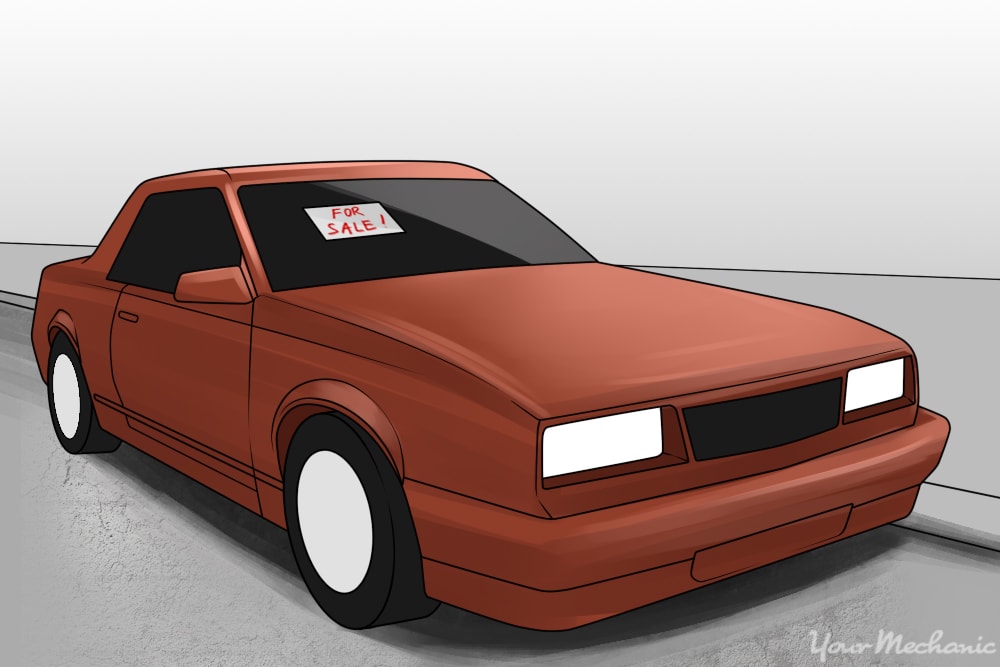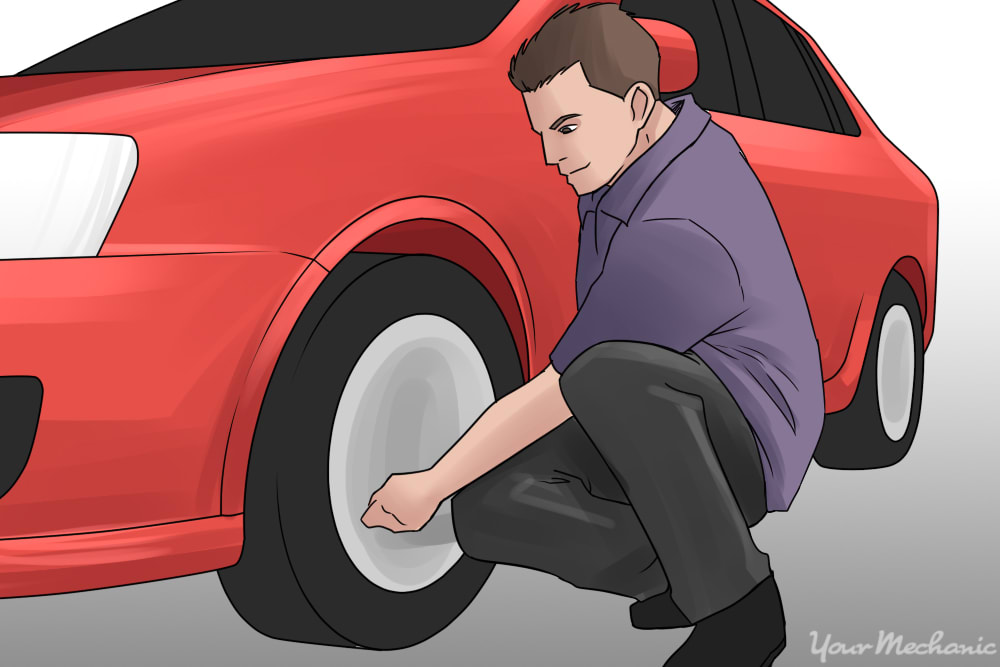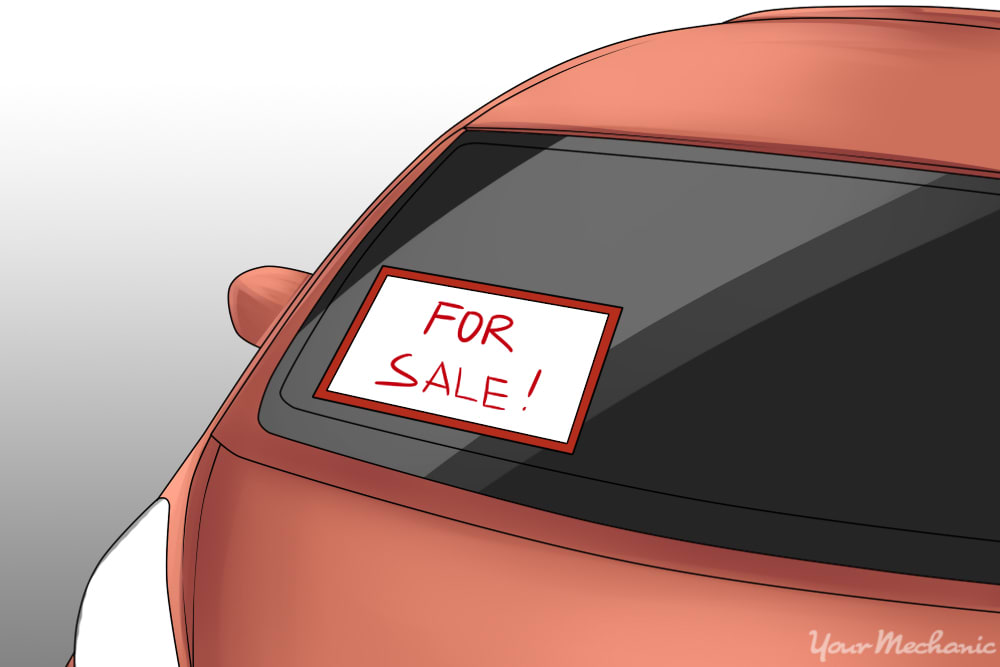

When shopping for a used car, dealership may not always be an option. Maybe your credit is not good enough, or you cannot afford to pay the asking price. In such cases, buying a car from a private individual represents another option. If you decide to buy a used car from a private seller, keep in mind the advantages and disadvantages. First off, though, you need to find a used car offered by a private seller, which is easy if you know where to look.
Part 1 of 3: Advantages and disadvantages of buying a car from a private seller
Before buying a used car from a private seller, consider the advantages and disadvantages. Doing so allows you to decide if buying a vehicle from a private seller is the right thing for you.
Step 1: Consider the advantages. Purchasing a used car from a private seller has many good points over buying from a dealership.
The advantages of buying a used car from a private seller include:
Lower price: Many private sellers choose to sell their vehicle at a lower price for many reasons, including wanting to sell the vehicle themselves as opposed to trading it in, a desire to sell the vehicle themselves to reduce their expenses, and because they no longer need the vehicle.
Negotiation: It is usually easier to negotiate the price of a car sold by a private seller. This is due to the fact that they are selling it for themselves, as opposed to a dealership that is seeking to maximize its profit. Most private sellers are just looking to get rid of the vehicle.
Vehicle maintenance history: Many private sellers who take good care of their vehicle keep accurate records for a vehicle. These records include anything from regular maintenance performed on the vehicle to major repairs.
Step 2: Consider the disadvantages. In addition to advantages, there are also some disadvantages to buying a used car from a private seller.
For the most part, the disadvantages have to do primarily with the honesty of the seller involved, including:
Legal protections: Federal and State laws are enacted to protect consumers from dealerships, but not so much from private sellers. Unfortunately, once you have purchased a vehicle from a private seller, you have limited options if something is wrong with the car.
Dishonest sellers: You can also fall prey to dishonest sellers. Whereas dealerships are supposed to tell you if there are any problems with a vehicle, sellers are not held to such criteria. The best approach to use when buying a used car from a private seller is “buyer beware.”
Part 2 of 2: Where to look for a car from a private seller
Once you have weighed the advantages and disadvantages of buying a used car from a private seller and have decided to go down this avenue to purchase your next car, it is time to find a vehicle. The biggest question is where to look. Luckily, you have many avenues to choose from when buying a vehicle.
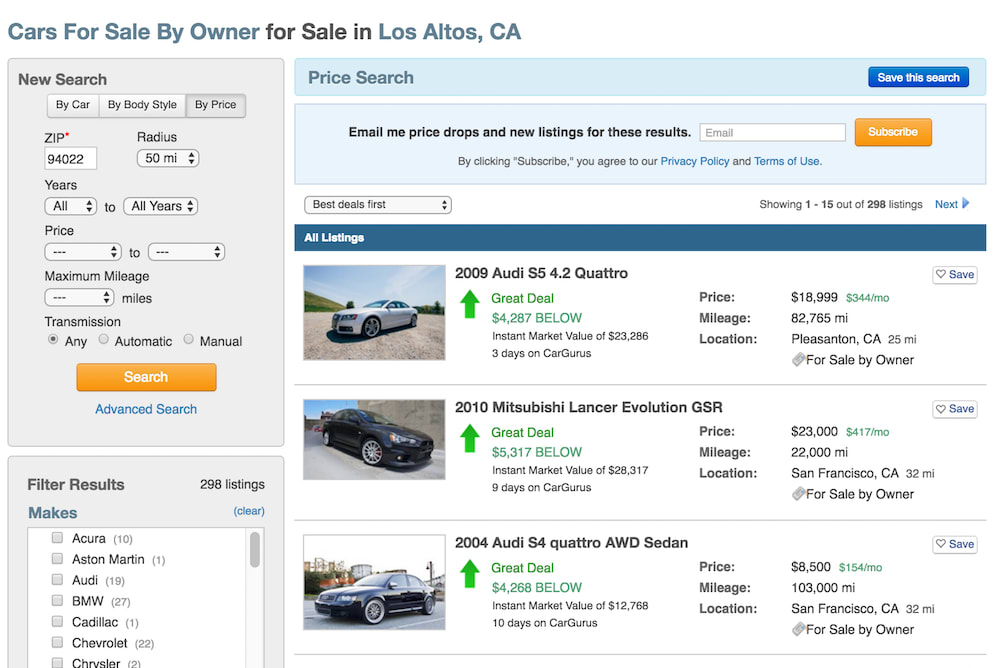
Step 1: Search online. One such option is to check out a variety of online sites for vehicles for sale from private sellers.
Some popular online sites and communities to find privately sold vehicles include:
Online sales sites: Sites such as eBay Motors, CarGurus, and Autotrader are a great way to find vehicles for sale by private sellers.
Online communities are also a great place to find private sellers, including sites that sell classic cars, such as OldRide.com; geared toward specific car types, such as Community Chrysler; and that highlight vehicles sold in specific communities, with Woodlands Online as one example.
Step 2: Look in local newspaper classifieds. Another option is to check your local for-sale ads in the classified section of your town’s newspaper.
This directs you to private sellers in your local area, or close by.
Be cautious when meeting with someone from a classified ad. You should take a family member or friend along, or meet in a public place to make sure the person is on the up-and-up.
Step 3: Search around your neighborhood. You can also look around your area to see if someone has placed a for-sale sign on their vehicle.
A good location to search is in residential neighborhoods around your area, as some sellers place their vehicle in a visible spot with a sign posted to passersby.
Sometimes, private sellers place the vehicle they want to sell in front of local businesses. Looking around your town’s business district isn’t a bad idea.
Part 3 of 3: What to look for when buying a car from a private individual
After finding a vehicle for sale from a private individual, you need to find out certain information before buying. This includes such information as the miles on the car, condition of the car, and other factors that help determine whether you want to purchase the vehicle or seek one elsewhere.
Step 1: Obtain information about the car. First off, find out some basic information about the car to help you decide if it is the vehicle for you.
Factors to focus on include:
- How many miles the vehicle has
- The manufacturer of the vehicle
- The specific model of the vehicle
- The year the vehicle was made
- Any mechanical work the vehicle needs or has received in the past
The asking price
Tip: You should also make sure all of the paperwork is in order before agreeing to purchase a used vehicle from a private seller. It is especially important to make sure the title is clear. Otherwise, you could encounter problems when trying to transfer the vehicle title over into your name.
Step 2: Set up a meeting. Once you have decided that you might want to buy the car, set up a time to meet the seller and inspect the car, including a test drive.
Meet the seller in a public place, or take a relative or friend along with you for safety.
If you have any questions about the vehicle, now is the time to ask.
Step 3: Inspect the vehicle. At the meeting with the seller, inspect the vehicle thoroughly.
While inspecting the vehicle, look for such things as:
- Water damage
- Body damage (including rust)
- Tire wear (uneven wear is a sign of alignment problems)
- Corroded battery terminals
- Oil in the air filter (indicates engine problems)
- Fluid levels (should be clean and clear)
- Air conditioner/heater (should blow unobstructed when turned on)
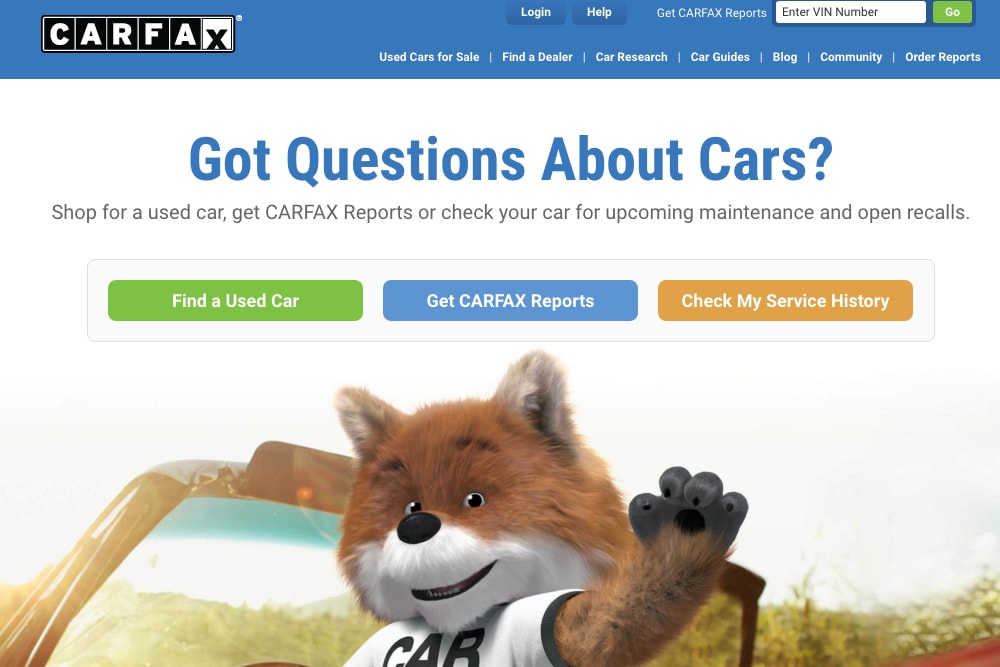
Step 4: Perform a vehicle history search. You should also get the Vehicle Identification Number (VIN) from the seller and run a vehicle history check.
A vehicle history can tell you if the vehicle has any records of involvement in any accidents. A site such as Carfax is a good place to look, though there is a cost involved.
You can find the VIN in a few places on the vehicle, with the easiest to reach being underneath the glass on the bottom of the driver's side front window or on the door frame of the driver's side door.
Step 5: Test drive the car. As a final precaution, take the vehicle for a test drive.
Test drive the vehicle in conditions similar to what you expect to drive on a daily basis. Take the car on hills if you usually drive on hills on the way to work, or long straight-aways if that is where you drive.
You should also have a trusted mechanic meet you while on your test drive to make sure the vehicle has no other problems you are unaware of.
- Warning: If the seller has a problem with having the vehicle looked at, then they are more than likely trying to hide something and you should look elsewhere. You should ask the seller up front if you can have the vehicle looked at by a mechanic and save yourself the trouble of meeting to look at the car if the answer is no.
Saving money by buying a used car from a private seller is easy if you know where to look. Protect yourself, though, by thoroughly checking a vehicle before buying. Call one of our expert mechanics at YourMechanic to meet you and perform a pre-purchase car inspection on any vehicle you have an interest in purchasing.



